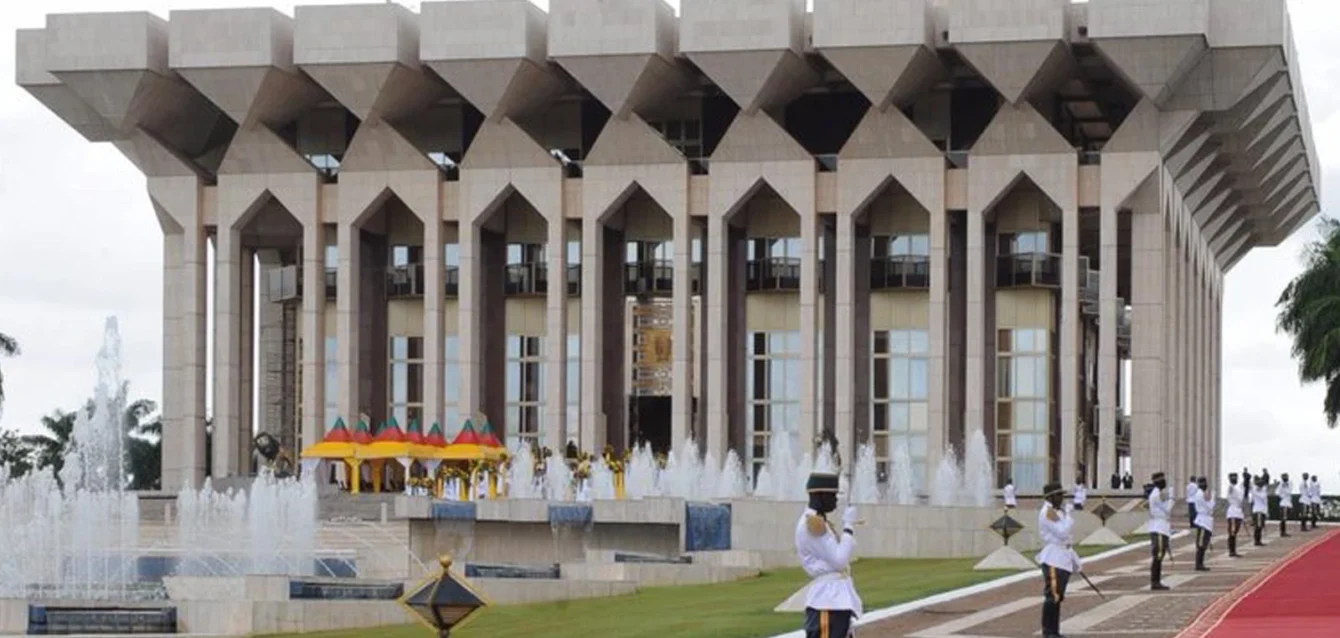Table of contents
Introduction
AI elections Cameroon 2025, in 2025, Cameroon is preparing for a crucial election in an ever-changing digital environment. Artificial intelligence (AI), which has the potential to radically transform communication and the dissemination of information, represents both an opportunity and a threat in the electoral context. While some players see AI as a means of improving campaign efficiency and data management, others are concerned about its dangers, particularly in terms of cybersecurity, disinformation and the manipulation of public opinion.
This article explores in depth the risks associated with the use of AI in elections in Cameroon in 2025, and highlights the importance of authorities taking proactive measures to protect the integrity of the electoral process.
1. The AI Revolution and its Electoral Applications
1.1. A powerful tool for political communication
AI technologies, in particular natural language processing systems and image generators, now make it possible to create and distribute content on a large scale. In an electoral context, these tools can be used to :
- Customize campaign messages AI algorithms can analyze demographic data to tailor political speeches and ads.
- Optimize information dissemination : Thanks to automation tools, it's possible to broadcast messages on several platforms simultaneously and in a targeted way.
1.2. Risks of Manipulation and Disinformation
However, this capacity for massive content production is accompanied by major risks:
- Fake News Generation AI can create misleading articles, videos and images that appear authentic. This falsified content can be used to influence opinions and votes.
- Disinformation campaigns Malicious actors can use AI to spread rumors and misinformation, creating a climate of mistrust and polarization.
- Social network manipulation AI-powered bots can flood social networks with biased or misleading messages, distorting public debate and influencing voting behavior.
These risks are exacerbated by the fact that voters, who are often ill-informed about the mechanisms of AI, can be easily manipulated by content manufactured and disseminated on a massive scale.
2. Cybersecurity issues in the electoral process
2.1. Digital infrastructure vulnerabilities
IT systems used to manage elections, such as electoral databases and online voting platforms, are prime targets for cyber attacks. The integration of AI technologies into these systems can introduce new vulnerabilities:
- Denial-of-service attacks (DDoS) AI can be used to coordinate massive attacks aimed at disrupting electoral systems.
- Intrusion and data manipulation : Sophisticated hackers can exploit flaws in AI-powered systems to modify or steal sensitive information, compromising the integrity of electoral rolls.
- Phishing and social engineering : AI can generate personalized, believable messages that can mislead employees and voters, facilitating unauthorized access to critical systems.
2.2 Real-life examples and recent incidents
Several recent incidents worldwide demonstrate how AI can be misused to compromise electoral security. Although Cameroon has yet to experience any large-scale attacks, the global trend suggests that authorities need to prepare now for these potential threats.
3. Disinformation in the AI Era
3.1 Creation and propagation of deceptive content
The use of AI to generate high-quality visual and textual content has made misinformation more accessible than ever. From advanced systemsThese tools, such as text and image generators, enable us to create content that appears authentic and credible. This capability raises several issues:
- Credibility and reliability AI-generated misinformation can spread rapidly and be perceived as legitimate by a large number of voters.
- Influencing public opinion : By manipulating the information disseminated on social networks, it is possible to create a climate of confusion and mistrust, thereby altering democratic debate.
3.2 Impact on the Electoral Process in Cameroon
In the Cameroonian electoral context, where trust in the democratic process is paramount, AI-generated disinformation represents a major risk. Disinformation campaigns can :
- Falsifying results By misleading voters, they can influence voting and change the outcome of elections.
- Destabilizing the social climate The spread of rumors and misinformation can exacerbate social tensions and provoke unrest.
4. Preventive Measures to Counter the Risks of Electoral AI
4.1. Strengthening cybersecurity
To protect election systems, it is essential to implement robust cybersecurity strategies, including :
- Continuous monitoring and early detection Real-time analysis tools to detect and neutralize potential attacks.
- Staff training : Raising employee awareness of social engineering techniques and the risks associated with computer attacks.
- Regular penetration tests Security audits to identify vulnerabilities in voting and data management systems.
4.2 Regulation and legislation
Electoral and government authorities must work together to establish a legal framework fit for the AI era:
- Setting strict standards for the use of AI in election campaigns.
- Monitoring online content : Collaboration with technology platforms to filter AI-generated disinformation content.
- Protection of electoral data Reinforcement of protection mechanisms to guarantee the confidentiality and integrity of electoral lists.
4.3. Transparency and awareness
Transparent communication is essential to maintain voter confidence. Authorities must :
- Informing the public on measures taken to protect electoral integrity.
- Explaining the role of AI in the electoral process and potential risks.
- Working with independent experts to audit systems and guarantee their security.
5. Opportunities and challenges for Cameroon in 2025
5.1. An Opportunity for Democratic Innovation
Despite the risks, AI offers unique opportunities to improve the electoral process. For example, AI systems can be used to:
- Improving electoral roll management : Accurate data analysis helps reduce errors and guarantee the accuracy of entries.
- Optimizing election logistics AI can help predict high-traffic areas and adjust resources accordingly.
- Ensuring transparency of results Automated verification algorithms can enhance the credibility of ballots.
5.2. The challenges ahead
However, these opportunities come with considerable challenges:
- Infrastructure complexity : Setting up reliable AI systems requires substantial investment and advanced technical expertise.
- Polarization risk The misuse of AI to spread misinformation could exacerbate social divisions.
- Maintaining digital sovereignty Cameroon needs to develop local capabilities to avoid total dependence on foreign technologies.
6. Preparedness Strategies for an Electoral Context 2025
6.1. Strengthening the resilience of electoral systems
To minimize risks, it is imperative to :
- Modernizing infrastructure Invest in secure data centers and reliable electronic voting systems.
- Implement advanced cybersecurity solutions Protect systems against cyber-attacks and manipulation attempts.
6.2. Voter awareness and education
Prevention also involves educating the public:
- Information campaigns Explain how to identify misinformation and AI-generated content.
- Educational programs Train voters in digital tools and the importance of data security.
6.3. Collaborate with AI and cybersecurity experts
The success of a secure election also depends on collaboration between government, AI experts, and technology companies. This synergy enables :
- Set up regular audits electoral systems.
- Develop rapid response protocols in the event of a cyber attack.
- Sharing best practices and feedback to strengthen the entire electoral process.
7. The Impact of Disinformation on the Electoral Process
7.1. AI generation of deceptive content
AI now makes it possible to create visual and textual content of impressive quality, which can be used to :
- Spreading fake news with formidable efficiency.
- Manipulating public opinion by spreading misinformation virally.
- Saturate social networks biased messages, making it difficult to distinguish between what is true and what is false.
7.2. Consequences for Voting and Public Confidence
Disinformation campaigns have a direct impact on election results. They can :
- Distorting voters' perceptions by amplifying hate messages or distracting attention from the real issues at stake.
- Destabilizing the democratic process creating widespread distrust of institutions.
- Slowing down civic engagement by discouraging voter turnout.
8. Preventive and reactive measures
8.1. Real-time monitoring and analysis
To counter the risks of misinformation and cyberattacks, it is essential to implement :
- Digital surveillance systems able to quickly identify and neutralize fraudulent content.
- The use of advanced analysis toolsto monitor disinformation trends and react proactively.
8.2. Strengthening the cybersecurity of electoral systems
The security of electoral infrastructures must be an absolute priority:
- Implementation of robust encryption protocols to protect sensitive data.
- Regular audits and penetration tests to identify and correct vulnerabilities before they are exploited.
- Specialized staff training in charge of electronic voting systems to anticipate attacks.
8.3. Collaboration with international players
Cameroon can learn from the experiences of other countries to strengthen its resilience in the face of the threats posed by climate change.AI :
- Strategic partnerships with international cybersecurity experts.
- Sharing best practices and a common regulatory framework to combat misinformation.
- Participation in technology watch networks to monitor developments and adapt strategies accordingly.
9. Transformation Opportunities for Cameroon
Although the dangers of usingAI in the electoral process are many, they also open up major opportunities to modernize and strengthen democracy:
- Modernization of electoral infrastructures The integration of advanced digital tools can improve the transparency and reliability of voting.
- Strengthening citizen participation Interactive and secure platforms can facilitate voter engagement and provide better information.
- Innovation in electoral data management Predictive analysis and automation help to optimize voting organization, reduce errors and anticipate electoral behavior.
These opportunities, if properly exploited, can turn challenges into levers for a more robust and transparent democracy.
10. Future Perspectives: AI for a Safer Electoral Process
By 2025, the rise of artificial intelligence represents both a challenge and an opportunity for Cameroon. While the risks of disinformation and cyber-attacks are real, the adoption of advanced surveillance and security technologies can guarantee free and transparent elections. To achieve this, it is imperative that all stakeholders collaborate and implement coordinated strategies to protect the democratic process.
Authorities need to invest in secure infrastructures, train their teams in the new technologies and establish strict regulatory frameworks. Only by adopting a proactive and collective approach will Cameroon be able to take advantage of AI innovations while preserving the integrity of its electoral processes.
FAQ - Frequently Asked Questions on the Risks of AI in the Electoral Context
1. What are the main dangers of using AI in the electoral process in Cameroon?
The main dangers include the spread of misinformation, the manipulation of opinions via AI-generated content, and cyber attacks targeting voting systems.
2. How can misinformation influence election results?
AI makes it possible to generate fake news and convincing visual content that can sow confusion and distract attention from the real issues, thus distorting the vote.
3. What cybersecurity measures are recommended to protect elections?
It is crucial to implement robust encryption protocols, carry out regular audits and penetration tests, and train staff in best security practices.
4. Can Cameroon benefit from AI to improve the electoral process?
Yes, AI can be used to modernize infrastructures, optimize data management and increase transparency, provided strict security measures are applied.
5. What opportunities are offered by the integration of AI into the electoral process?
In addition to securing data, AI offers the possibility of improving citizen participation and optimizing electoral logistics through predictive analysis and automation.





